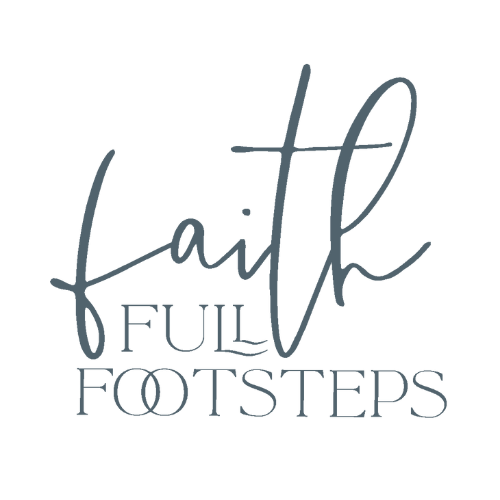
by Kelli Garms | Feb 7, 2020 | Spiritual Growth, Women's Ministry
By now you probably know how much I value words. Words are powerful; they have an impact. And lately, I’ve been thinking a lot about the word “freedom.”
Have you ever responded to someone’s request with “It’s a free country”?
- Can I sit here? It’s a free country.
- May I ask you a question? It’s a free country.
- Do you mind if I chomp my gum in your ear while you’re trying to watch a movie? It’s a free country (but you’re driving me crazy!)
Unfortunately, we have begun to think of freedom as the entitlement to do whatever we want, whenever we want, without fear of consequences because, well, it’s a free country. This isn’t the definition of freedom but of anarchy.
The truth is freedom doesn’t give us the right to do whatever we want whenever we want without consequences. Freedom means we have choices. We have the opportunity to choose with the understanding that all choices come with consequences.
Those who live in countries that aren’t free don’t have choices. They might be told what career they will pursue, how much money they can make, or how many children they can have, and they don’t have a say in that decision. Their spouses, their faith, and their standards of living are assigned to them without their input.
In this day when the entitlement epidemic is running rampant, it behooves us to remember that nothing is free of consequences, and chances are someone else paid the price for us to have a choice.
What a powerful punch that little word packs!

by Kelli Garms | Jan 31, 2020 | Family, Women's Ministry
I remember about 3 years ago when I chose my first word of the year. Until then, I hadn’t really understood why people chose a word of the year. How did a word of the year even help?
What I have found is it is much like setting a goal. If you’re not a goal setter, this may not help you understand, but I am a goal setter, or at least, I’ve become one.
I have found that having a word of the year helps me filter the things I add to my to-do list, the goals I set, and the people I allow to influence me.
My first word of the year was “Thrive.” Because we decided to homeschool our kids that year, it turned out to be the perfect word. For year 2, my word was “Savor” since we were in the midst of adjusting to homeschool, and I wanted it to be a positive experience. Last year, I chose the word “Undeserving” after hearing a sermon from my pastor which was incredibly convicting.
My word of 2020 is “Cultivate.” I read a book by this title at the end of 2019, and I discovered something about myself. I realized that I am too hard on myself. I expect too much too fast. I set an intention, and as soon as I meet it, I set a new one, not bothering to celebrate the accomplishment. So this year, I want to start cultivating things in my life, realizing they will take time and celebrating the victories along the way.
I want to cultivate my prayer life, my friendships, and my business. I want to cultivate characteristics in our family like peace, laughter, and patience. I want to learn from the hard things and spend time in the dirt because I know they have a purpose. And then I want to enjoy the fruit of the labor.
Do you have a word for 2020?

by Kelli Garms | Jan 17, 2020 | Spiritual Growth, Women's Ministry
I remember back to when my family had first returned to the U.S. after spending most of my childhood and adolescence on the mission field. My mom would wash and reuse zip lock bags and plastic cups. Now, I watch my kids use a paper plate for one (1) cookie and then throw it away. How times have changed! We live in a disposable culture. Even things like computers, cell phones, and kitchen gadgets seem to be cheaper to replace than the money, time, and energy it takes to repair them.
Unfortunately, this disposable mentality has seeped into other areas of our lives. It is more difficult to get people to commit to jobs, ministries, and even relationships. If you have a disagreement with someone in your church, you can go find another church. If you have a falling out with a friend, that’s ok, you can find another one on Facebook. If you don’t like something your boss said or did, just get another job. Everything in our lives seems to be disposable.
An unfortunate side effect of this mentality is that we don’t have any depth in our lives. Our friendships are shallow or even non-existent. We give up on our marriages at the first sign of trouble. We walk away from our jobs or our ministries because they aren’t fun anymore.
But there is something to be said about sticking with something or someone even when things are hard or monotonous. There is maturity and depth that comes with working through the issues or choosing to be content in our circumstances. And the loneliness that comes from a disposable mentality can be suffocating.
From what have you been tempted to walk away lately that maybe deserves a second glance?

by Kelli Garms | Nov 29, 2019 | Family, Women's Ministry
One of my goals for 2020 is to stop trying to multitask. The truth is true multitasking is a myth, and when we try to do it, we can cause brain damage. Let me explain.
Your mind can only focus on one thing at a time. You can only “multitask” when only one of the things you are doing requires focus. For example, it is possible to fold laundry while watching TV or listen to a podcast while applying your makeup. However, if you drop that eyeliner, you stop listening to the podcast and shift your focus to the makeup. If you can’t find the matching sock, you take your focus off of the TV show to look for it.
The problem occurs when I try to do too many things that actually require my focus, like watching a video while I play a computer game and text my group chat. Then I’m not actually multitasking, but instead, I am quickly shifting my focus from one thing to another and back again. This causes a loss of attention span and can ultimately damage your brain.
But it is difficult to step away from multitasking when there are so many things on my to-do list!
Here are a few things I have discovered as I have tried to cut multitasking out (and don’t think for a moment that I have been 100% successful):
✔️ I am actually more productive when I focus completely on one thing at a time. I’m faster at tasks that used to take me FOREVER to accomplish.
✔️ I notice more moments that are right in front of me. This allows for spontaneous memory building with my kids.
✔️ I even enjoy my meals more when I focus on what I’m eating instead of watching a video or listening to a book while I eat. This, in turn, keeps me from snacking so much throughout my afternoon. #nonscalevictory
✔️ Content that I consume, whether it’s a podcast, a book, a video, or a training, stays with me because I’m fully present. This allows me to make connections between the many different things I’m consuming on a weekly basis.
✔️ Even though I seem to be getting more done, I feel like my life is slowing down a bit, which is something I find myself longing for in this season of life.
So in 2020, I will strive to kiss multitasking good-bye! Will you join me? I’d love to hear your thoughts.
P.S. If you’d like to learn more about how the mind works and how to align it with Scripture, check out my course, Captive Thoughts. It might be just the thing you’ve been looking for!

by Kelli Garms | Nov 8, 2019 | Family, Women's Ministry
I’m kind of nerdy, so I love research. I’ve been spending a lot of time these days researching the brain, and I’ve discovered something fun!
Did you know that daydreaming is good for your brain? It’s true! When you allow your mind to wander, you are using your brain the way it is supposed to be used. You can follow thoughts to their logical conclusions, veer off on rabbit trails, or focus on something you’re processing.
When our bodies are tired, they need to rest, and this often involves sleep or lack of movement. But our minds get tired when we don’t use them. They rest in activity.
Have you ever noticed on days when you sit in front of the TV all day, you are more tired? It is because your mind is bored. So when you think, you are actually resting your mind. God’s ingenuity amazes me!
Let’s daydream today and every day!

by Kelli Garms | Oct 25, 2019 | Family, Spiritual Growth, Women's Ministry
Do you wish your husband was more spiritual? We are at a unique time in our history where, as women, we have access to so many tools to improve our personal walk with the Lord. Unfortunately, sometimes it can lead us to frustration with our husbands if we don’t see them tapping into resources like we are. Here are some things to remember:
- Your expectations for your husband’s spiritual walk aren’t necessarily God’s expectations for him. God doesn’t love us more because of what we do or don’t do. Our spending time with Him is for our benefit; as we spend time in His Word and in prayer, we fall deeper in love with Him, but it doesn’t change His love for us.
- Your husband doesn’t answer to you. He is a grown man who makes his own decisions. Dropping hints, nagging him, or trying to manipulate him into a closer walk with the Lord will very likely have the opposite effect.
- Celebrate the “little things” when you see God working in his life. Is he faithful to church? Does he listen to podcasts or watch youtube videos that discuss spiritual things? Is he a godly father to your children? Ask God to open your eyes to the things He is doing in your husband’s life.
- Most importantly, pray. Pray for your husband, but also pray for yourself. Pray that God would soften your heart, open your eyes, and convict your spirit when things get frustrating. Pray for your husband’s protection, the guarding of his heart, and the shielding of his eyes from everything the enemy is throwing at him.
Remember that your personal walk with the Lord is just that—personal. Your husband’s walk with the Lord is also personal. Wait and watch as God does a marvelous work in you both!






